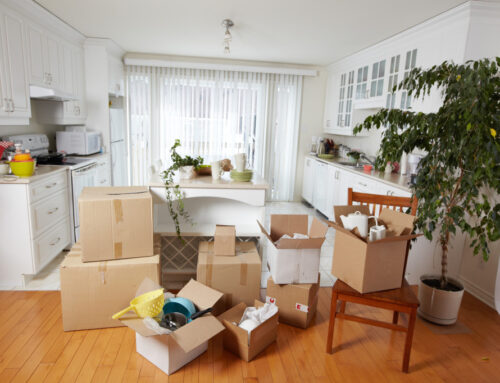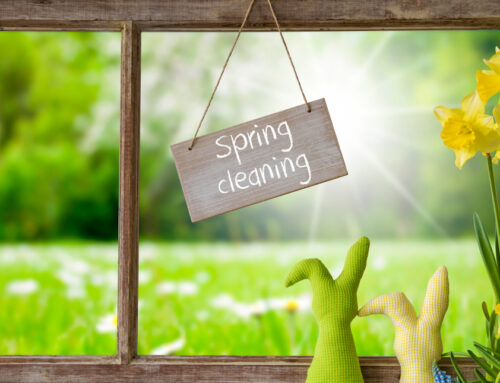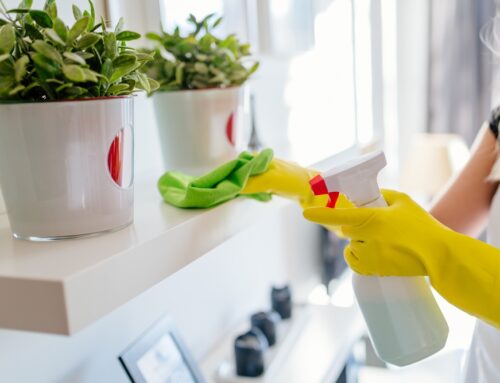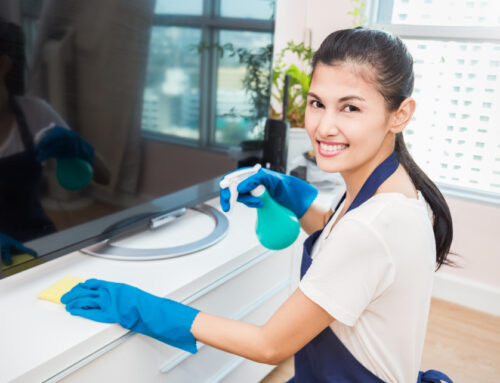Maintaining a clean and tidy home is not only important for aesthetic purposes, but it also has a significant impact on the air quality of your living space. Poor indoor air quality can lead to a wide range of health issues, including respiratory problems, allergies, and headaches. However, with a few simple steps, you can improve the air quality in your home and breathe easier.
Dust and Vacuum Regularly
Dusting and vacuuming regularly is an essential step to improve the air quality in your home. Dust is made up of a variety of particles, including pet dander, pollen, dirt, and other debris. These particles can trigger allergies and asthma symptoms, and even cause more serious health problems such as respiratory issues, heart disease, and even cancer.
When dust accumulates in your home, it can also attract other pollutants like mold spores, bacteria, and viruses. These can thrive in the dust, and when disturbed, can become airborne and circulate throughout your home, increasing your exposure to harmful particles.
Regular vacuuming and dusting can help prevent the buildup of these pollutants, and reduce your risk of developing health problems. It’s recommended to vacuum carpets and rugs at least once a week, and to dust surfaces such as shelves, tables, and bookcases with a microfiber cloth or a damp cloth to avoid spreading the dust.
When choosing a vacuum cleaner, it’s important to select one that has a high-efficiency particulate air (HEPA) filter. HEPA filters are designed to capture even the smallest particles, such as pollen and pet dander, and prevent them from being released back into the air. This ensures that the dust and other particles are removed from your home and not just pushed around or redistributed.
It’s also important to change the vacuum cleaner bag or empty the dustbin regularly, as a full bag or bin can reduce the effectiveness of the vacuum cleaner and release the trapped particles back into the air.
In addition to vacuuming and dusting, it’s also important to clean bedding, curtains, and other soft furnishings regularly. These items can accumulate dust and other pollutants, and can contribute to poor indoor air quality. Washing bedding and curtains in hot water can help remove allergens and other particles, while also killing dust mites.
Keep Humidity Levels Under Control
High humidity levels in your home can not only make you feel uncomfortable, but they can also have a negative impact on your indoor air quality. When the air is too humid, it creates a breeding ground for mold, mildew, and dust mites, which can all contribute to poor indoor air quality and health problems.
Mold and mildew are particularly concerning, as they can release spores into the air that can trigger allergies and respiratory problems. If left untreated, they can also cause structural damage to your home.
To keep humidity levels under control, it’s important to identify areas in your home that are prone to moisture, such as the bathroom, kitchen, and basement. These areas are often sources of moisture due to activities like cooking, showering, and laundry.
Using a dehumidifier is an effective way to control humidity levels in these areas. A dehumidifier works by removing moisture from the air, reducing the likelihood of mold and mildew growth. It’s important to choose a dehumidifier that is the appropriate size for the area you’re using it in, as an undersized unit won’t be effective at removing moisture from the air.
Another way to control humidity levels is to ensure proper ventilation in your home. This means opening windows and doors when weather permits, running exhaust fans in the bathroom and kitchen, and using air conditioning to remove excess moisture from the air.
It’s also important to fix any leaks or water damage in your home promptly. Even small leaks can lead to increased humidity levels and contribute to the growth of mold and mildew.
Replace Air Filters Regularly
The air filters in your HVAC system are designed to trap pollutants such as dust, pollen, and pet dander, preventing them from circulating in your home. However, over time, these filters become clogged with the trapped particles and become less effective at trapping new pollutants. This can result in poor indoor air quality, as the dirty air filters recirculate the trapped pollutants back into your home.
Replacing your air filters regularly is essential to maintaining good indoor air quality. The frequency of replacement will depend on a variety of factors, including the type of filter, the size of your home, and the number of people and pets in your household. In general, it’s recommended to replace air filters every three months, but it’s important to check the manufacturer’s recommendations for your specific filter.
Dirty air filters not only recirculate pollutants back into your home, but they can also lead to problems with your HVAC system. Clogged air filters can cause your system to work harder to circulate air, leading to increased energy costs and potentially expensive repairs.
When choosing air filters, it’s important to select filters that are appropriate for your HVAC system and your indoor air quality needs. High-efficiency particulate air (HEPA) filters are the most effective at trapping pollutants, but they may not be appropriate for all HVAC systems. It’s important to check with a professional if you’re unsure about the right filter for your system.
In addition to replacing air filters regularly, it’s also important to have your HVAC system serviced by a professional on a regular basis. This can help identify and fix any issues with your system that may be contributing to poor indoor air quality.
Open Windows and Doors
Opening windows and doors is one of the simplest and most effective ways to improve indoor air quality. Indoor air can become stale and stagnant, especially during the winter months when homes are sealed tight to conserve energy. This can lead to a buildup of pollutants such as dust, allergens, and volatile organic compounds (VOCs), which can have a negative impact on your health and wellbeing.
Opening windows and doors allows fresh air to circulate through your home, helping to remove these pollutants and improve indoor air quality. Fresh air can also help to regulate humidity levels in your home, reducing the risk of mold and mildew growth.
It’s important to open windows and doors on days when the weather is nice and the air quality outside is good. On days when the air quality is poor, opening windows and doors can actually make indoor air quality worse, as it allows outdoor pollutants to enter your home.
To maximize the benefits of opening windows and doors, it’s important to open them for at least a few hours at a time. This allows enough time for the fresh air to circulate throughout your home and for stale air to be removed.
In addition to opening windows and doors, you can also use natural ventilation methods such as cross-ventilation, which involves opening windows on opposite sides of your home to create a draft. This can help to increase airflow and improve indoor air quality.
It’s also important to ensure that your windows and doors are properly sealed to prevent air leaks. Air leaks can reduce the effectiveness of your HVAC system and allow outdoor pollutants to enter your home.
Hire a Professional Cleaning Service for Your Regular Cleaning
Hiring a professional cleaning service for your regular cleaning needs can be a convenient and effective solution. Professional cleaners have the experience, tools, and expertise to thoroughly clean your home, removing even the smallest particles that can contribute to poor indoor air quality.
Professional cleaning services use high-quality cleaning products that are free from harmful chemicals and are effective at removing pollutants. They also have access to specialized equipment, such as HEPA vacuums, that are designed to capture even the smallest particles.
In addition to improving indoor air quality, hiring a professional cleaning service can also save you time and energy. You won’t have to spend your weekends cleaning your home, and you can focus on other important tasks or activities.
When choosing a professional cleaning service, it’s important to select a reputable company that uses environmentally friendly cleaning products and practices. You should also ensure that the company is licensed, insured, and bonded, and that their employees undergo background checks and are properly trained.
Conclusion
In conclusion, maintaining a clean and tidy home is crucial for improving indoor air quality. While regular cleaning can be a challenge for some, hiring a professional cleaning service like Your Fresh Start Clean in Athens, OH can be a convenient and effective solution. Professional cleaners have the expertise, tools, and experience to thoroughly clean your home, removing even the smallest particles that can contribute to poor indoor air quality.
Aside from hiring a professional cleaning service, dusting and vacuuming regularly, keeping humidity levels under control, using natural cleaning products, replacing air filters, and opening windows and doors are all great tips to improve indoor air quality. By implementing these practices, you can breathe easier and enjoy a healthier living space. And with the help of a trusted professional cleaning service like Your Fresh Start Clean, you can take your home’s cleanliness and indoor air quality to the next level.





